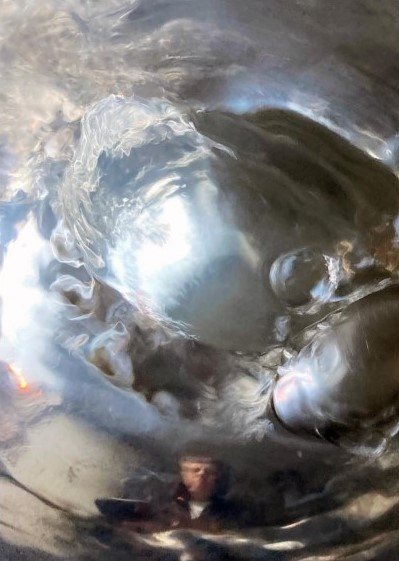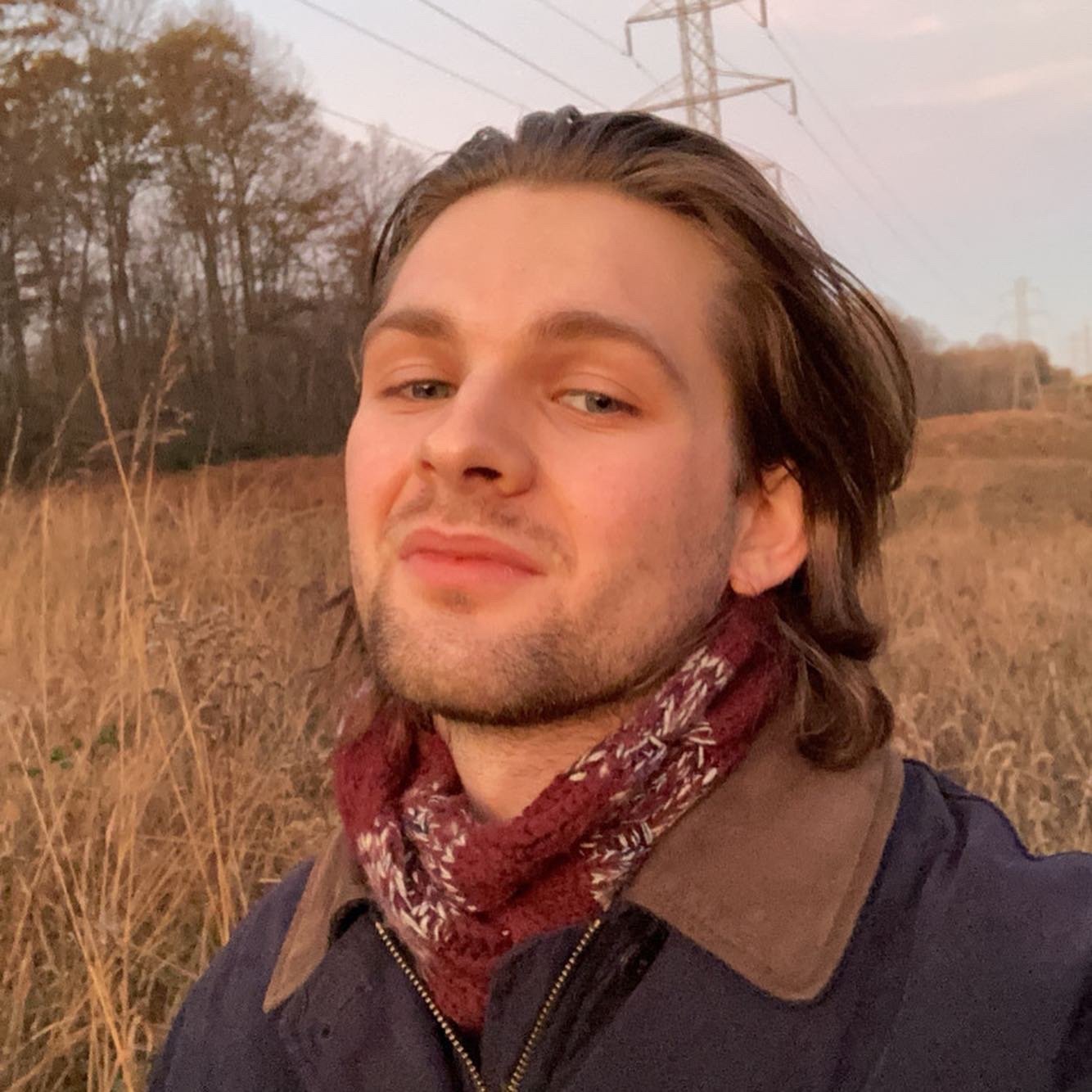Sudden Empathy
/María DeGuzmán
Mystic’s Vision
You open the book to a bowl, a hooded figure cupping fire, rotating updrafts of wind.
Autopoiesis of the Ouroboros
A snake eating its own tail, a phantom feline at the bedside of the dying,
a survivor remembering the others drowned at sea.
Petitions of the Dying
Confabulations with the dead begin in the zone of departure.
Flotsam of your history, they swim up.
Sinking down, you have never been so lucid.
We Watch You as You Ride Through Treacherous Currents
Successive storms have brought you here,
to a rider on a pale horse,
under a lowering sky of invisible witnesses.
Dalí & The Rocks of the Cap de Creus
The dead practice sudden empathy
with a precision rare in the living.
They remind you of refuge & awe
among sea caves of remembered turquoise.
Author’s Note: I obtained the photographic images by stirring water around in a bowl with a spoon and photographing the interaction between daylight and the moving water. Images such as these constitute a sort of optical unconscious, what surpasses our ability to see in the moment, but that is, nevertheless, there, as the photographic process reveals. However, what is “there” involves continual acts of interpretive perception on the part of viewers, myself included. I imagined the images proffered by the water bowls as pages in a picture book. The pictures suggested to me the verses of the photo-poem. These images appeared in my water bowls between late June and late October 2021, over a course of four months during the COVID-19 pandemic. They seem consonant with the reckonings, grief, and sorrow of these times characterized not only by the pandemic, but also by rapidly accelerating climate change, mass displacements and migrations, and a heightened awareness of the ever-present proximity of illness and death. Simultaneously dark and luminous, the uncanny formations of these images lend themselves to visionary transports and space-time travels that expand the spectrum of potential responses and engagements with them.
María DeGuzmán is a scholar, conceptual photographer, creative writer, and music composer / sound designer. Her photographic work has been exhibited at The Institute of Contemporary Art (Boston, MA, USA), Watershed Media Centre (Bristol, England), and Golden Belt Studios (Durham, NC, USA). She has published photo-text pieces in many literary journals, among them Typehouse Literary Magazine, Oxford Magazine, Mandorla: New Writing from the Americas, and Huizache: The Magazine of Latino Literature. Her SoundCloud website may be found at: https://m.soundcloud.com/mariadeguzman.





































